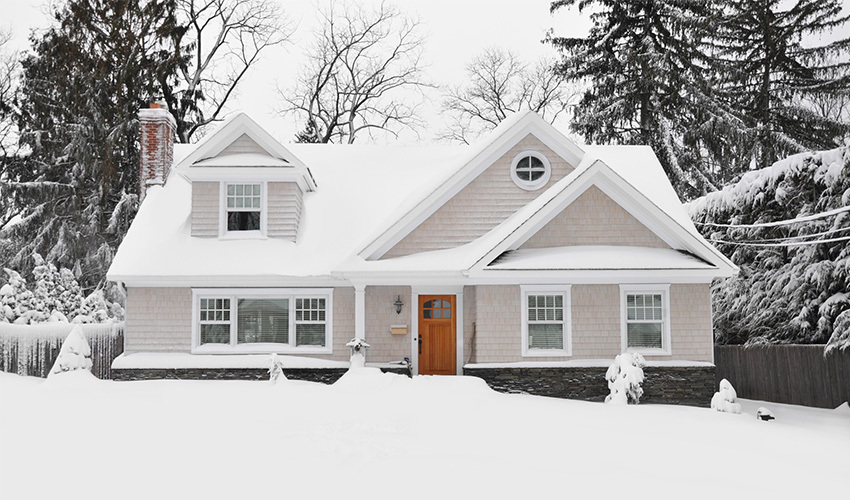How Often Should My Furnace Cycle in the Winter?

Winter weather puts your furnace to the test. After months of being dormant, the system suddenly finds itself working overtime. While it should cycle throughout the day, clicking on too frequently may indicate a problem.
Homeowners often find themselves wondering, "How often should my furnace cycle?" The answer lies in a gray area. On average, furnaces should kick on and turn off anywhere from three to eight times per hour. However, if your furnace turns on and off more frequently, don't assume the furnace is short cycling just yet.
Is the Furnace Cycling On and Off Normal?
The number of times your furnace runs per hour depends on several variables. Your home's insulation, characteristics of the house, outdoor air temperatures, and even the age of your furnace may all play a role. And yes, in some instances, frequent cycling may indicate an issue with the system.
Why is My Furnace Cycling On and Off?
If you notice that your furnace is cycling frequently, it may be because:
› The Furnace Is the Wrong Size
A bigger furnace isn’t always better. Furnace short cycling is often the direct result of an oversized system. But wouldn't a larger furnace heat a home faster and better? Surprisingly, the answer is no.
While an oversized heater will heat a smaller home quickly, it won't evenly distribute the air. The system will short cycle to keep temperatures equal throughout the house. Which size is best? Energy.gov recommends 12,000 BTU per 400-500 square feet, but this number may change based on your home's insulation and local climate.
› The Furnace is Overheating
When it's freezing outside, your furnace could be burning up on the inside. Overheating is a leading cause of furnace short cycling. What causes overheating? In many instances, restricted airflow is the culprit. A blockage in the ducts or a clogged filter can stop air from flowing out of the system.
› The Furnace is Past Its Prime
How old is your furnace? As the system gets older, you may notice the furnace cycling on and off more frequently. On average, furnaces last for about 15 to 20 years. As it reaches the end of its lifespan, it may not run as efficiently as before. Short cycling is a common indicator that it is time to buy a newer model.
› A Malfunctioning Thermostat
The thermostat tells the furnace when to cycle. If the thermostat malfunctions or breaks, your furnace will not know when to stop running. Where you place the thermostat also plays a role. To keep your furnace from cycling too often, make sure the thermostat isn't too close to a heat source or in direct sunlight.
› A Dirty Flame Sensor
Does your furnace only cycle for a few seconds at a time? A dirty flame sensor may be the reason. Cleaning the sensor will help regulate cycles and prevent harmful gas leaks in your home.
Extremely Cold Weather or Short Cycling?
Icy temperatures mean your furnace will kick on more frequently. It will do everything possible to keep up with the outside temperatures—even if that means cycling more often. However, your system shouldn't turn on and cut off every few minutes just because there's a layer of snow on the ground. Furnace cycles should last until the house reaches the desired temperature.
A few factors come into play when determining whether constant cycles are due to extremely cold weather or not. How well insulated is your home? Losing too much heat through the roof, windows, or doorways will cause your furnace to run more often. High ceilings and single-pane windows are common culprits.
If your furnace only turns on for a few minutes at a time, but your home never warms up, it's probably short cycling. Colder temperatures will make the system work harder, but it's time to have the furnace inspected if the cycles just keep getting shorter.
Keep Your Furnace Running Smoothly All Winter Long
While your furnace will cycle several times each hour during the winter, frequent cycling may indicate a bigger problem. Think your system cycles too much? Your local Aire Serv® will diagnose the issue and fix it right away. Call (855) 679-0011 or request an appointment online for furnace repair with our expert Service Professionals.
 Click to call
Click to call


